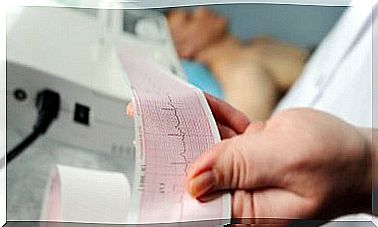The 6 Nutritional Deficiencies That Can Cause Depression
Depression is a mood disorder. It is characterized by the continuous appearance of feelings of sadness, irritability and a general loss of interest in daily activities and life in general.
At present, it is considered a public health problem, since it is quite frequent in the population. And especially from developed countries.
Until a few decades ago it was thought that its appearance was only due to some emotional situations. However, over time, it was found to be due to variations in brain chemistry that can be caused by environmental factors, hormonal changes, and genetics.
In addition, it has been determined that its development has a lot to do with eating habits, since the deficiency of some nutrients increases the incidence of suffering from it on a recurring basis.
Due to this, it is essential to improve the diet, and increase the consumption of those foods whose nutritional value helps to avoid and combat this problem.
To this end, below we want to share in detail those 6 deficiencies that have been related to its development.
Discover them!
1. Omega 3 fatty acids

Foods rich in omega 3 fatty acids provide multiple benefits to the body and, incidentally, to emotional health.
Its intake plays a key role in the development and functioning of the central nervous system since it controls inflammation and regulates its activity.
It is also key to balancing the secretion of chemicals in the brain and reducing the risk of premature aging.
It is even recommended as part of the treatment for depression, since it increases serotonin production while minimizing excess cortisol.
It can be obtained through:
- Fatty fish
- Seeds and nuts
- Vegetables
- Eggs
- Vegetables
2. Vitamin D
Not only does a lack of vitamin D increase the risk of bone and joint problems, it can lead to severe bouts of depression and dementia.
This vitamin is key in the secretion of serotonin, a neurotransmitter linked to good mood and happiness.
Correct absorption of this nutrient reduces the risk of emotional imbalances and, in turn, exerts positive effects on the immune system.
The most common way to absorb it is with the sun’s rays, but it is also found in foods such as:
- Blue Fish
- Cod oil
- Fortified cereals and soy products
- Dairy products
- Eggs
- Mushrooms
3. Zinc

Zinc is another micronutrient that participates in the regulation of emotions, stimulating some neuronal functions and the activity of the nervous system.
At adequate levels, it increases the production of the neurotransmitters of well-being.
In turn, it is involved in more than 250 independent biochemical pathways that have to do with the functioning of the main organs.
Foods to correct this deficiency include:
- Red meat
- The eggs
- Seafood
- Legumes
- the nuts
- The seeds
- Whole grains
- Organic dairy
4. Selenium
This nutrient is essential for proper brain function and control of mood lows.
It plays an important role in the function of the thyroid gland, which, in turn, is essential for good mental health.
Its antioxidant and restorative effect is key to the prevention and treatment of depressive disorder.
It can be obtained from:
- Lean meats
- Blue Fish
- Beans and peas
- Eggs
- Seafood
5. Magnesium

Unfortunately for everyone, magnesium is one of the most difficult minerals for the body to absorb.
In fact, it is estimated that many physical and mental pathologies have to do with the deficiency of this nutrient.
In the treatment of depression it has a main role, not only because it increases the production of serotonin and dopamine, but also because it reduces the production of cortisol.
Increase the consumption of:
- Algae
- Almonds
- Avocados
- Bananas
- Beans
- Pumpkin seeds
- Whole grains
- Saved
- Green leafy vegetables
6. Iron
Iron deficiency is one of the leading causes of anemia, mental fatigue, and depressive disorders.
This is because it is an essential component in cognitive and sensorimotor development and functioning.
Its low levels cause a lack of red blood cells. It affects cellular oxygenation and increases symptoms such as emotional imbalance, fatigue, and mental confusion.
To increase its levels it is necessary to eat:
- Red meat
- Beet
- Blue Fish
- Oatmeal
- Spinach and green vegetables
- Grenades
- Eggs
- Beans
- Peanut butter
Combating the deficiencies mentioned can be key in the treatment of those patients with depression and emotional losses. However, it is necessary to analyze other aspects to determine what may be its origin and what other measures are required.
Daniela Echeverri Castro
Professional writer with more than 7 years of experience. Daniela Echeverri Castro has worked as a content creator and editor on different web pages. She has been coordinator and content manager in various editorial teams. He also has extensive experience in SEO and digital marketing. In recent years he has focused his writing work on health, nutrition and wellness issues. In addition, he took the course Nutrition and obesity: overweight control, offered by the National Autonomous University of Mexico (UNAM). Likewise, he has collaborated in several projects of editing and curation of texts for thematic blogs. Since 2014 she has been an editor at Better with Health and currently collaborates in the editorial section of Grupo MContigo.








